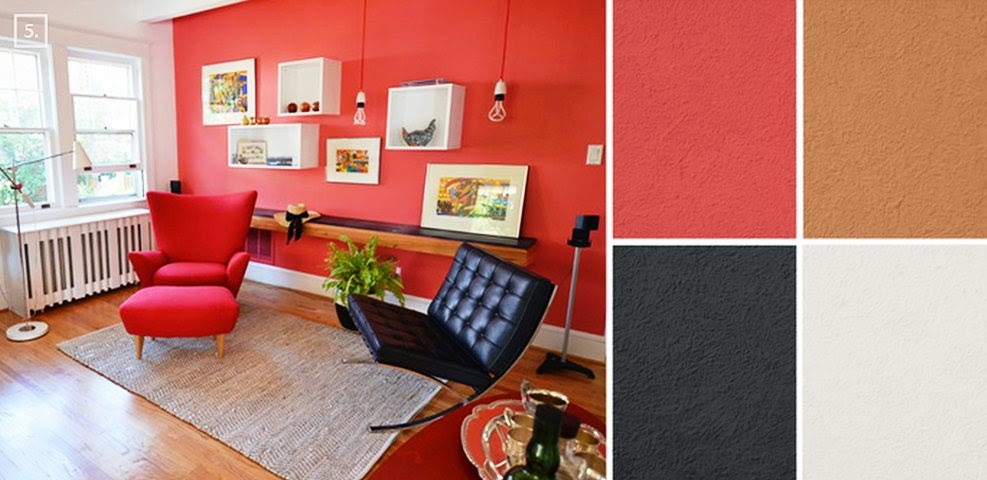Deciphering the Art of Paint Color Matching Across Brands
In the symphony of design, color reigns supreme, a conductor of mood, a whisperer of aesthetics. Yet, within this vibrant realm lies a subtle challenge: the quest for consistent color across the diverse landscape of paint brands. Imagine, if you will, holding a swatch of the perfect cerulean, a shade evocative of a summer sky, only to find its twin in another brand a jarring dissonance, a subtle but noticeable shift in hue.
This pursuit of harmonizing paint colors across brands is a nuanced dance between science and art. It's a journey into the heart of pigmentation, undertones, and the very language of color itself. Why does this seemingly simple task present such a hurdle? The answer, as with most artistic endeavors, lies in the details. Each paint manufacturer, like a unique artisan, possesses its own palette, its own alchemy of pigments and binders that imbue their colors with distinct personalities.
Historically, color matching was a laborious process, relying on trained eyes and meticulous hand-mixing. Today, technology offers sophisticated tools like spectrophotometers that analyze color with scientific precision. However, even with these advancements, the human element remains crucial. The interplay of light, the texture of the surface, and even the individual's perception of color all contribute to the final result. This delicate balance between technological precision and human interpretation makes the art of color matching a compelling exploration.
The significance of cross-brand color matching transcends mere aesthetics. In large-scale projects, consistency is paramount. Imagine a hotel chain striving for a unified brand identity, or a historic restoration project demanding unwavering fidelity to original hues. In such cases, the ability to accurately replicate a color across different paint lines becomes not just desirable, but essential.
One of the core issues in matching paint colors lies in the variation of pigment formulations. Different brands utilize distinct combinations of pigments to achieve a seemingly identical color. However, these underlying differences can manifest under varying lighting conditions, revealing subtle but discernible shifts in hue. Understanding these nuances is key to achieving a harmonious color scheme that transcends brand boundaries.
One benefit is cost-effectiveness. Matching a desired color from a premium brand to a more affordable alternative allows for significant savings without compromising the desired aesthetic.
Another advantage is increased availability. If a particular color is out of stock in one brand, finding a match in another brand ensures project continuity.
Thirdly, matching colors offers greater flexibility in product selection. Certain brands specialize in specific paint types, such as eco-friendly or high-durability paints. Matching colors allows you to choose the paint best suited for your project's needs, regardless of brand.
Advantages and Disadvantages of Matching Paint Colors Across Brands
| Advantages | Disadvantages |
|---|---|
| Cost savings | Potential for slight color variations |
| Increased availability | Requires careful attention to undertones |
| Product flexibility | Can be time-consuming |
One real-world example is in the hospitality industry, where consistent branding across multiple locations is crucial. Hotel chains often use color matching to ensure that the signature shade of blue, for instance, is identical in every hotel, regardless of the paint brand available locally.
A common challenge is metamerism, where two colors appear identical under one light source but differ under another. The solution is to evaluate color matches under various lighting conditions, including natural daylight, incandescent, and fluorescent light.
FAQ
1. Q: Can I rely solely on paint chips for color matching? A: Paint chips can be a starting point, but they are not always accurate representations of the final paint color.
2. Q: What is the best way to ensure accurate color matching? A: Consulting with a paint specialist and using a spectrophotometer are the most reliable methods.
One tip is to always test the matched paint on a small, inconspicuous area before applying it to the entire surface. This allows you to evaluate the color in the actual environment and make any necessary adjustments.
In the grand tapestry of design, the ability to harmoniously blend colors across brands empowers us to weave narratives of beauty and consistency. It is a testament to our understanding of color's subtle language, a bridge between the artistry of human perception and the precision of scientific measurement. Embrace the challenge, explore the nuances, and unlock the potential of color matching to elevate your designs to new heights. By understanding the principles of color theory, utilizing technological tools, and exercising careful observation, you can achieve a symphony of color that transcends brand boundaries and transforms spaces into captivating works of art. The journey of a thousand brushstrokes begins with a single, perfectly matched hue.
The catchy beat of creativity exploring tiktok mashups for kids
Spice up your hump day wednesday chili night
Unlocking the potential of behrs gallery taupe a comprehensive guide














